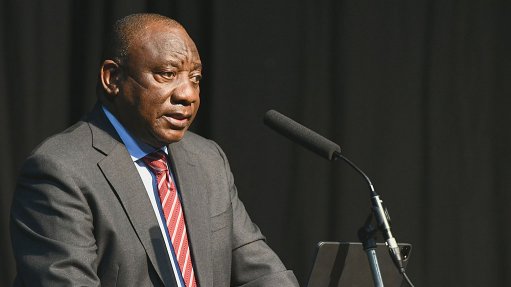
President Cyril Ramaphosa
Since the launch of government’s Black Industrialists Programme in 2015, coupled with efforts from the Industrial Development Corporation, the National Empowerment Fund and other agencies, more than 900 black industrialists have been supported, to the value of R55-billion.
In turn, this had delivered socioeconomic returns valued at R160-billlion to the economy and created more than 50 000 jobs, President Cyril Ramaphosa announced at the Black Industrialists and Exporters conference, held in Sandton, on July 20.
The conference showcased the products and services of more than 140 black-owned businesses.
Next year marks 20 years since the promulgation of the Broad-Based Black Economic Empowerment (BBEEE) Act.
Ramaphosa said government had undeniably made gains in transforming a skewed, racialised economy. For example, there were about 150 000 black-owned businesses in the formal sector in 1994. This had grown to more than 300 000 today.
There had also been advances in employment equity, the President noted, highlighting that the number of black managers in the private sector had more than doubled over the past 20 years from 125 000 in 2002 to 350 000 today.
In the public sector, that number had grown from 45 000 to 150 000.
However, Ramaphosa said South Africa had not yet overcome the structural defects of the economy, which run deep and are reflected in the high levels of unemployment.
“With the country’s majority having been deliberately and systemically excluded from the economic mainstream for centuries, it is no wonder that self-employment and entrepreneurship in South Africa are at lower levels than most peer economies.”
The President explained that small and medium-sized employers and self-employed people made up one in three of all employed people in rural areas in peer countries, and one in seven in the urban areas.
In South Africa, just 1 in 20 people are small and medium-sized employers and self-employed, both in rural and urban areas.
According to modelled estimates from the International Labour Organisation, business owners in South Africa plus family members who work for them make up just 17% of total employment. This compares with 46% in China and an average of 31% in other upper-middle-income economies.
Self-employment and entrepreneurship are the engines of growth and job creation in any economy. They support innovation, boost competitiveness and bring new products and services into an economy. To a large extent, this entrepreneurial deficit is the legacy of the policies of the past, Ramaphosa pointed out.
He admitted that there were still barriers to black entrepreneurs participating meaningfully and equitably in the economy, particularly for women, young people and people with disabilities.
These include the concentrated nature of the economy and ownership patterns, access to finance, access to markets and technology, as well as a lack of infrastructure.
Ramaphosa said the energy crisis and port inefficiencies were also posing great barriers to economic growth of this nature.
To this end, government intended to use the conference to garner insight about what needed to be done, and shift the transformation agenda into higher gear. “We need to talk about private sector procurement, value chains, access to financing for emerging black businesses and about how existing systems mitigate against emerging black businesses,” Ramaphosa averred.
He added that government was open to discussing far-reaching reforms in telecommunications, energy and water to improve the competitiveness of the economy and reduce the cost of doing business.
The President hoped that development finance institutions and the private sector would provide more support to black industrial projects and bridge the financing gaps that both aspirant and established black businesses relied on for their sustainability.
“Unless tangible, sustainable measures are implemented, we run the risk that empowerment opportunities are confined to black businesses transacting with the State and that an economy is created that only benefits a few, while still not reflecting the country’s demography,” Ramaphosa remarked.
The President concluded by saying that unless BBBEE was at the centre of government efforts, there could be no inclusive recovery and reconstruction of the economy.
“Our vision for the future of BBBEE will build on our successes, learn from shortcomings and be agile in response to the realities of the national and global economies.”